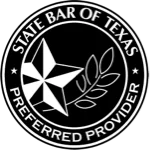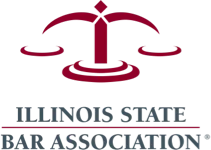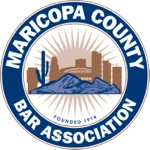When chaos hits your law firm, you need to manage your reputation extremely carefully. The key to keeping your cool, whether handling a public crisis or client relations drama, is controlling the narrative.
Effective crisis management for law firms requires quick, confident action. Your team must be united in strategy.
It’s best to prepare before a crisis hits, of course. Otherwise, commit to showing up with a clear narrative and staying available to concerned parties without reacting to their antics.
Here’s crisis management 101 for law firms facing challenges to their online reputation.
Your online reputation matters even more than you think
Let’s get specific. Reputation is more than just a fleeting emotion associated with your firm, or a single bad headline or negative review. In reality, people’s perceptions of your firm may be formed 98% digitally either via your website design or your other online profiles.
Your online reputation has serious staying power, and it can be seriously impacted by online narratives during a crisis.
This concept is important, and it’s backed by data. A majority of consumers say that a company’s online reputation will influence their decision to choose that company.
Bottom line: Legal professionals need strategies that can help manage online crises and protect reputations. Your business is at stake.
Prepare ahead of time with a crisis communication plan
Can you actually prepare beforehand?
Yes! You might be surprised at the kinds of crises you can anticipate in your line of work. Just speak to a colleague or a veteran attorney. Scan the headlines for horror stories about other law firms, from privacy breaches to client disputes.
What can I do ahead of time?
Figure out your strengths and weaknesses. You can designate a spokesperson and provide media training. You can prepare templates for pre-approved statements to help expedite responses to potential crisis scenarios. You can run “crisis drills” and establish clear internal channels so that your team members know where to turn for information.
Should I work with a PR person?
They’re experts for a reason. It’s well worth reaching out now to someone who specializes in crisis PR for law firms to ask for strategic guidance. Collaborate on long-term strategies to improve your resilience and prevention. If you’re navigating something complex at the moment, consider retaining a PR firm.
Do positive reviews count for anything in a crisis?
Proactively request reviews from satisfied clients. Positive testimonials in public places can help offset negative PR and balance out your firm’s online presence, especially if the reviews are current and varied.
How to respond when a crisis hits
Here are the key aspects of effective crisis management:
- Timeliness: Address the issue as soon as it’s identified. This prevents escalation.
- Transparency: Be as clear as you can about what’s happening and how you’re resolving it. Communicate thoughtfully in a way that reflects your values.
- Consistency: Keep your public statements consistent across platforms, monitoring and correcting misinformation. This maintains credibility.
- Openness: Listen to your clients and keep the lines open. This encourages loyalty and trust.
- Persistence: Continue to communicate about the ways you are resolving the issue and preventing its recurrence, highlighting specific policy changes if appropriate.
Before every public statement or post, check it against this list. Is it timely? Is it transparent? Is the narrative consistent? Does it show openness? Then, stay persistent in owning that story until you’ve regained trust and rebuilt your reputation.
How to stay alert for emerging issues and crises
The truth is that it can sometimes be a challenge to even identify that you’re in a crisis. One could argue that lead time is the biggest difference between a disgruntled reviewer, an emerging issue, and a crisis.
Keep your ear to the ground to get ahead of small issues before they become big issues.
- Utilize alerts: Tools like Google Alerts, Brandwatch, Muck Rack, Meltwater, and Mention can help you monitor online mentions of your firm. Many social media scheduling tools also have a “listening” function, which you can configure based on specific topics and keywords.
- Monitor regularly: Perform routine checks of all your social media platforms and review sites, at minimum once per week.
- Assign ownership: Choose a team member who will be responsible for monitoring your reputation and ensuring timely responses. They can reach out for help, but it works best when a single person is accountable.
- Reply or remove: Engage, whether they’re positive or negative reviews. Early intervention is key. When defamatory or false content is present, work with legal counsel to remove it.
Final tips
The best time to prepare for a crisis is before it’s a crisis.
While that’s not always possible, there are plenty of ways your firm can plan for challenges—starting with building a strong online presence.
Invest in resilience today so you’re better prepared to handle tomorrow.












